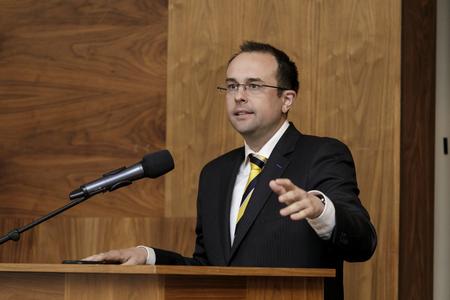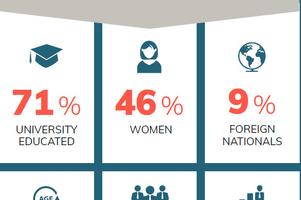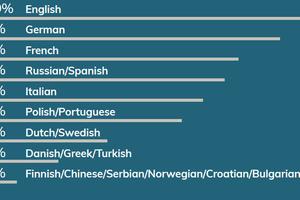This text was published as part of the special supplement on Business service centres, prepared in cooperation with AmCham Slovakia BSCF.
Throughout the years, business service centres (BSCs) have become multinational environments with several foreign languages being spoken in one workplace. Currently, about 9 percent of the 32,632 people working for the centres associated with the Business Service Center Forum (BSCF) are foreigners.
However, the representatives of the centres are often complaining about the long and complicated hiring process, since the period for processing the immigration papers of non-EU nationals willing to work in Slovakia can take up to six months. Since BSCs are one of the fastest-growing economic sectors in Slovakia and increasingly need a foreign workforce to realise their growth potential, they called for simplifying the processes and removing barriers that hinder the arrival of highly-skilled resources.

After the call from other business sectors resulted in a dropping unemployment rate and an increasing lack of qualified staffers on the Slovak labour market, the state started adopting measures to simplify the recruitment of non-EU workers. This included changes to the law on employment services, which became effective in May 2018, and the adoption of a strategy for the labour mobility of foreigners, whose first measures came into force in January 2019.
Though most of the changes can be perceived positively on paper, in reality, improvements to the legislation are unlikely to bring any benefit to companies or foreign employees until the labour offices and foreign police departments are sufficiently staffed to process the cases within those committed times, said General Manager of IBM ISC, Paul Burt.
“Our experience today is that these offices do not meet their commitments in processing time, and so an improvement in legislation will not make any practical difference, unless it is backed up with adequate staffing in those offices,” Burt told The Slovak Spectator.
Steps to simplify processes
One of the changes concerning the hiring process of foreigners, introduced in May 2018, applies to the use of the so-called lists of scarce professions, published by the Central Office of Labour, Social Affairs and Family (ÚPSVaR), in districts where the unemployment rate is below 5 percent.
This means that companies are no longer required to first report a vacant position to the labour office and wait for at least 30 days before seeking workers from so-called third countries, or those outside the EU. The share of such workers cannot exceed 30 percent of the total number of staff, however.
Originally, the lists were updated once a year, but after the changes, which became effective on January 1, 2019, the lists are expected to be updated every three months.



 Despite some improvements, it still takes companies a long time to hire an employee from a non-EU country. (source: TASR)
Despite some improvements, it still takes companies a long time to hire an employee from a non-EU country. (source: TASR)
 (source: AmCham)
(source: AmCham)


